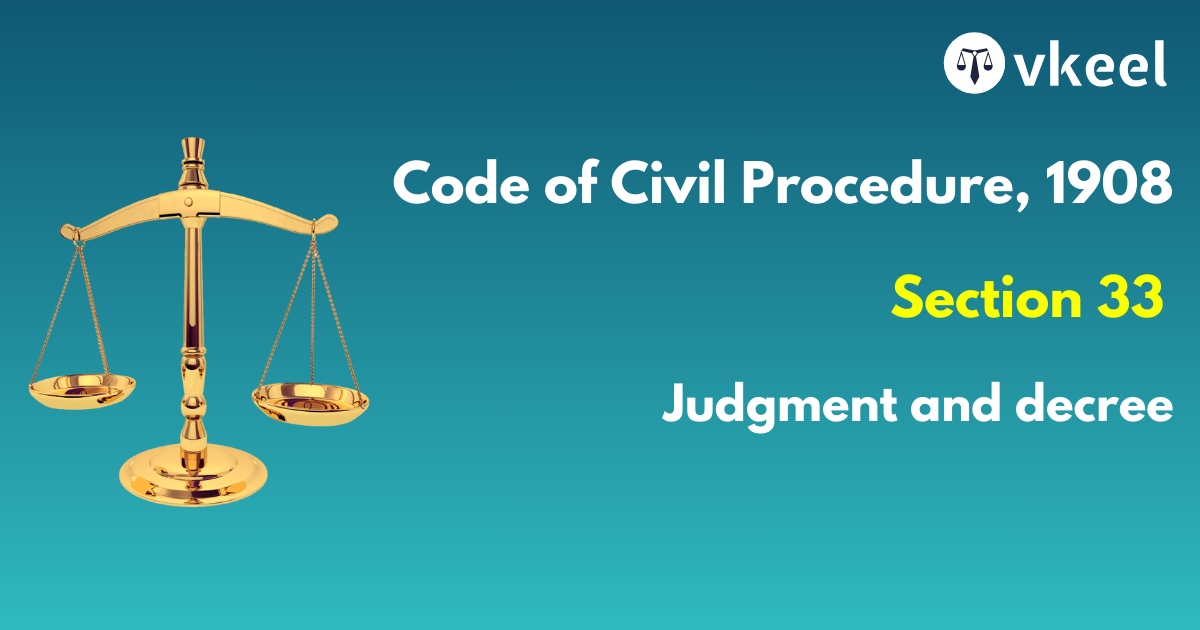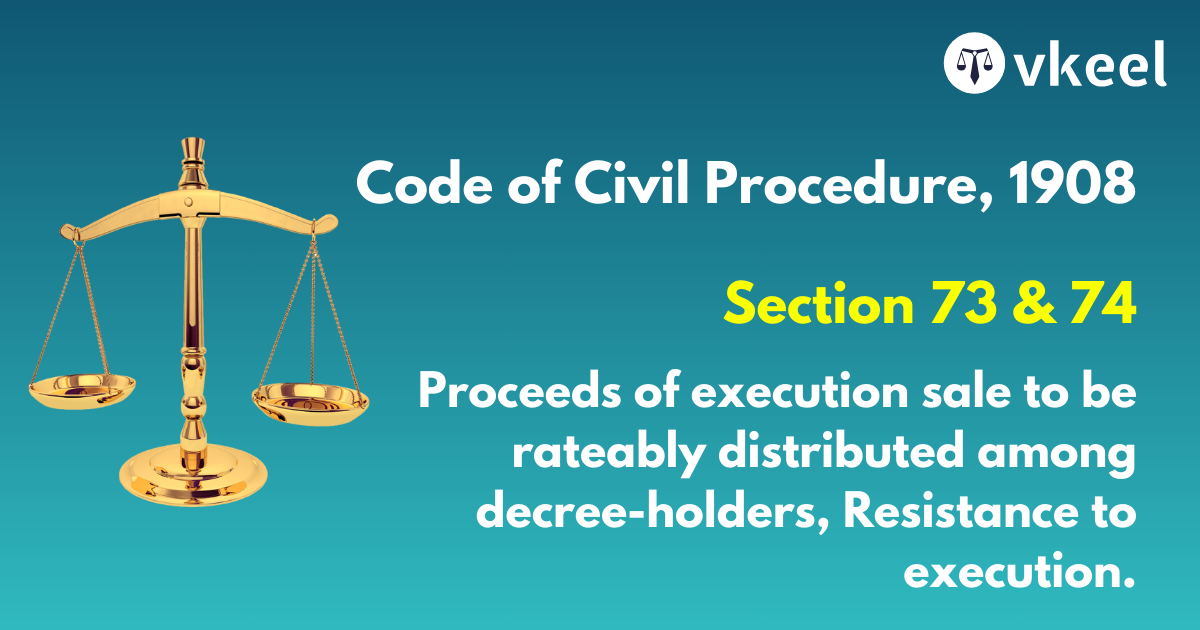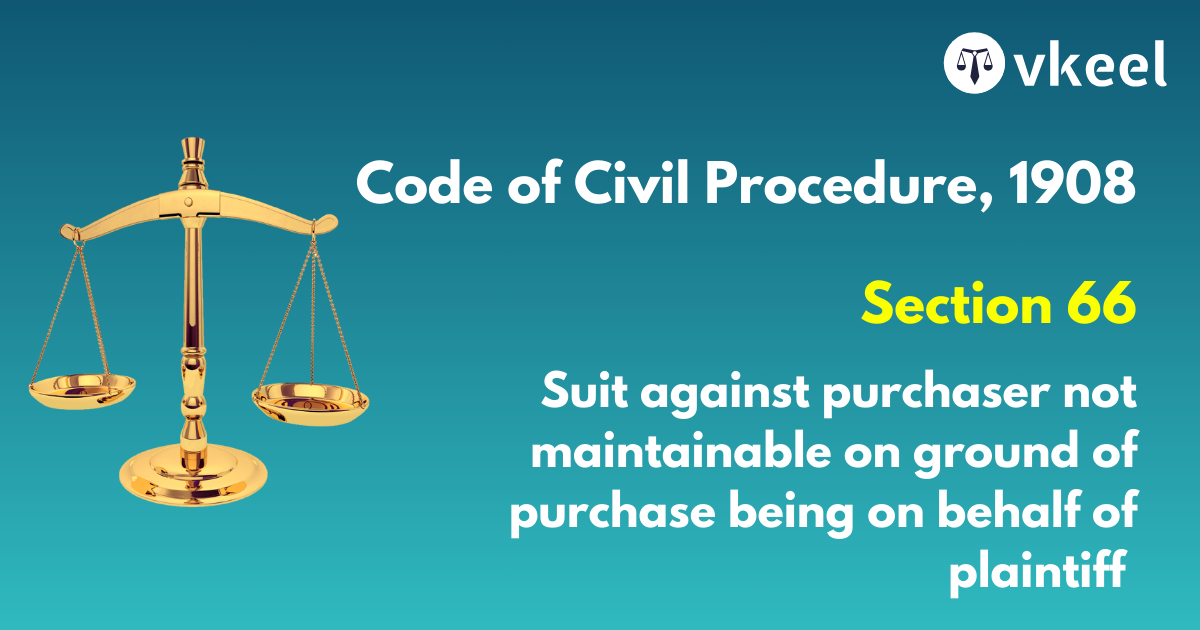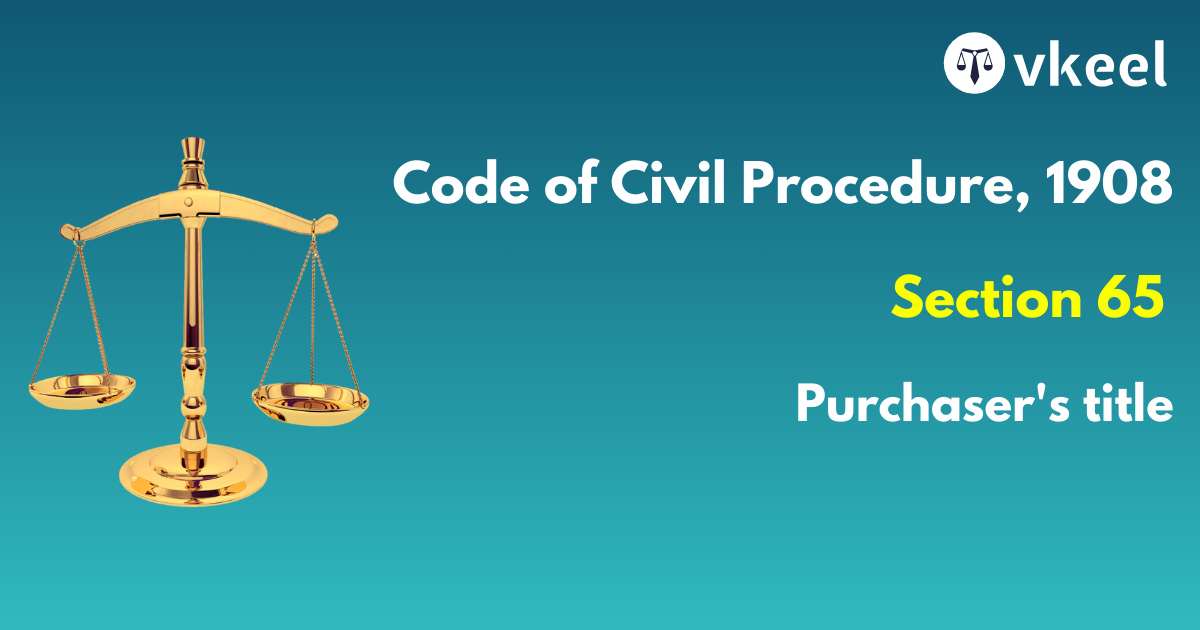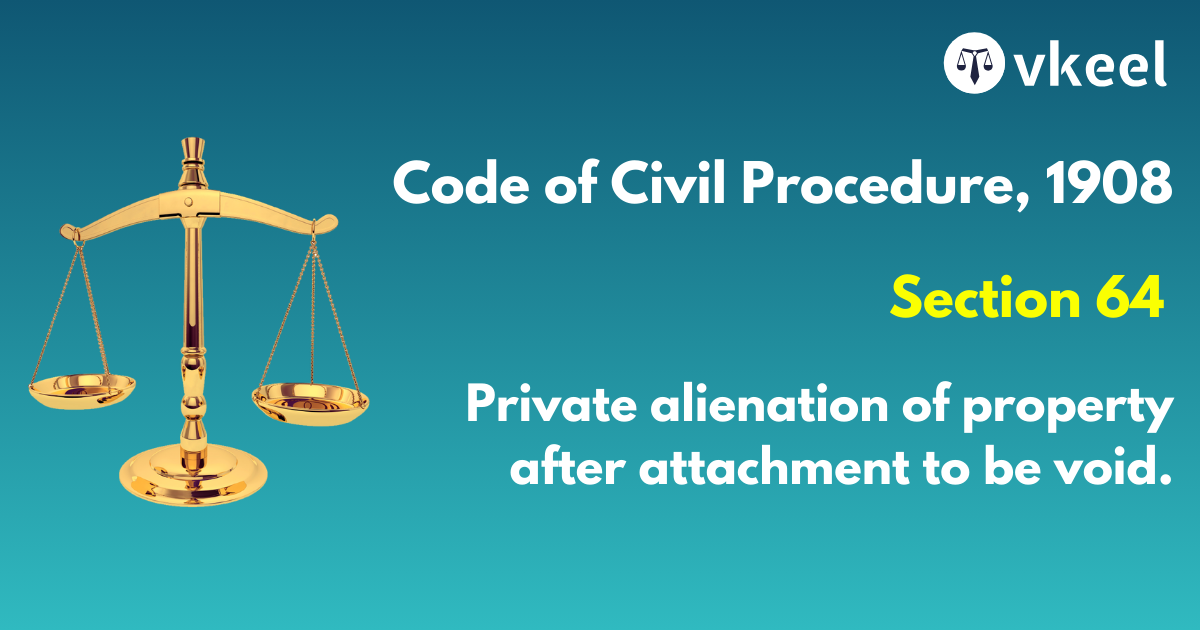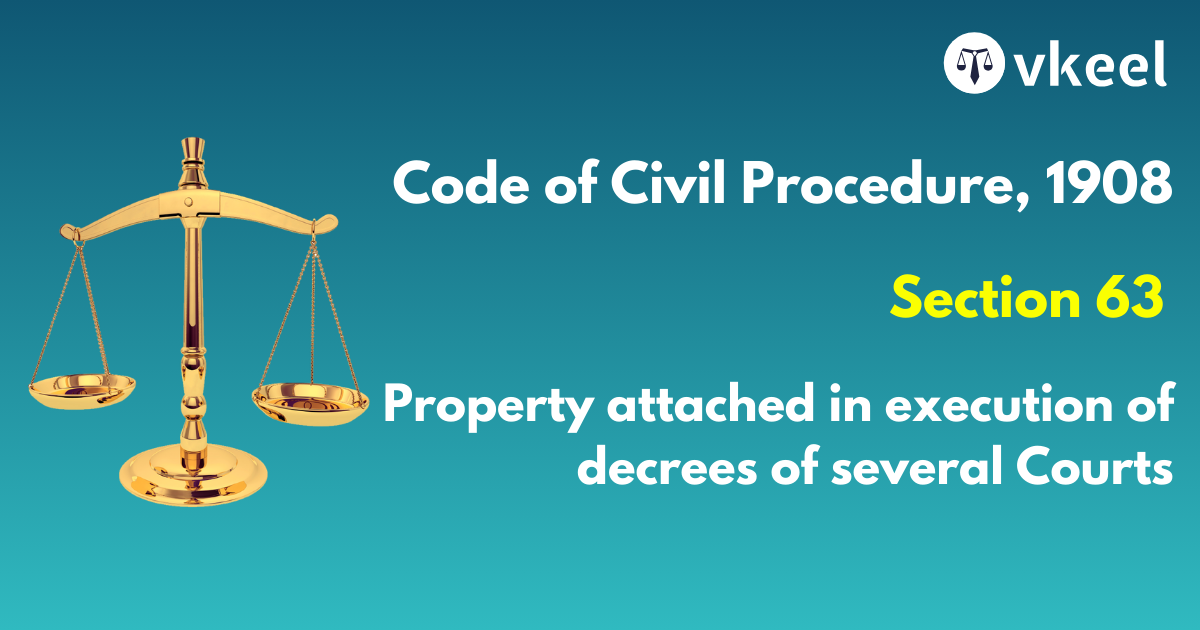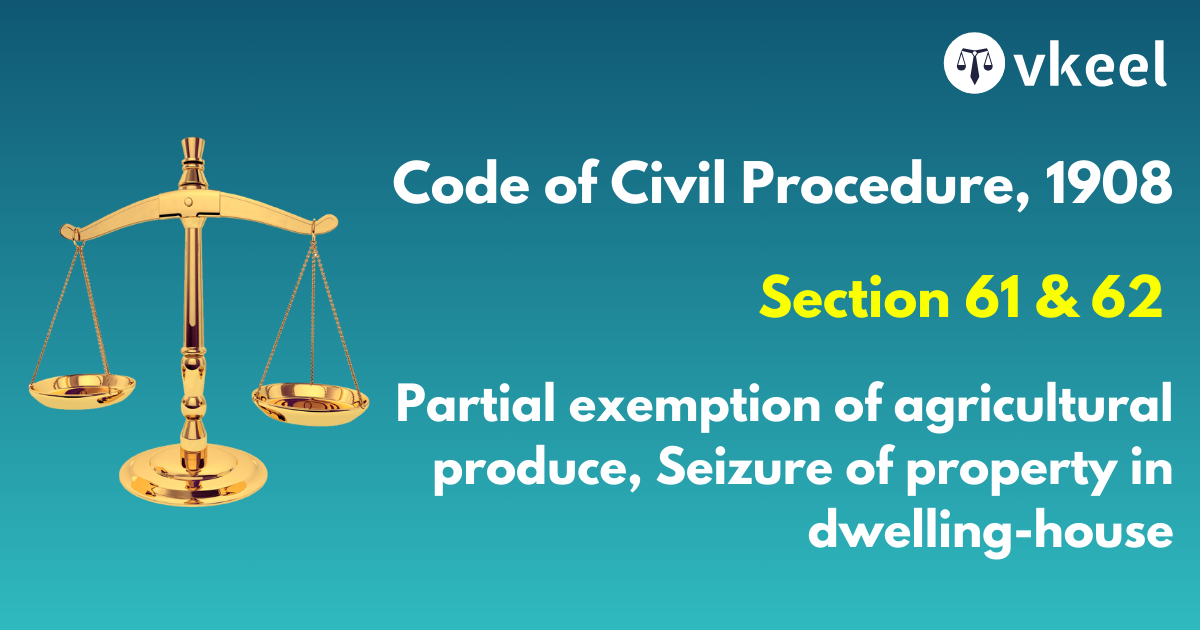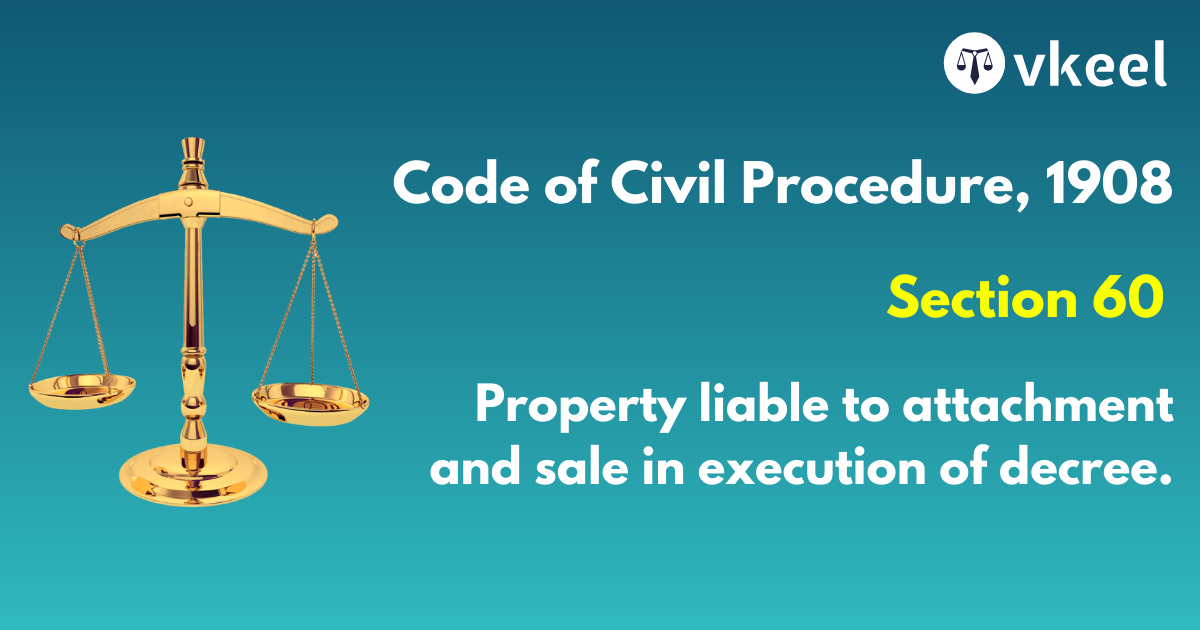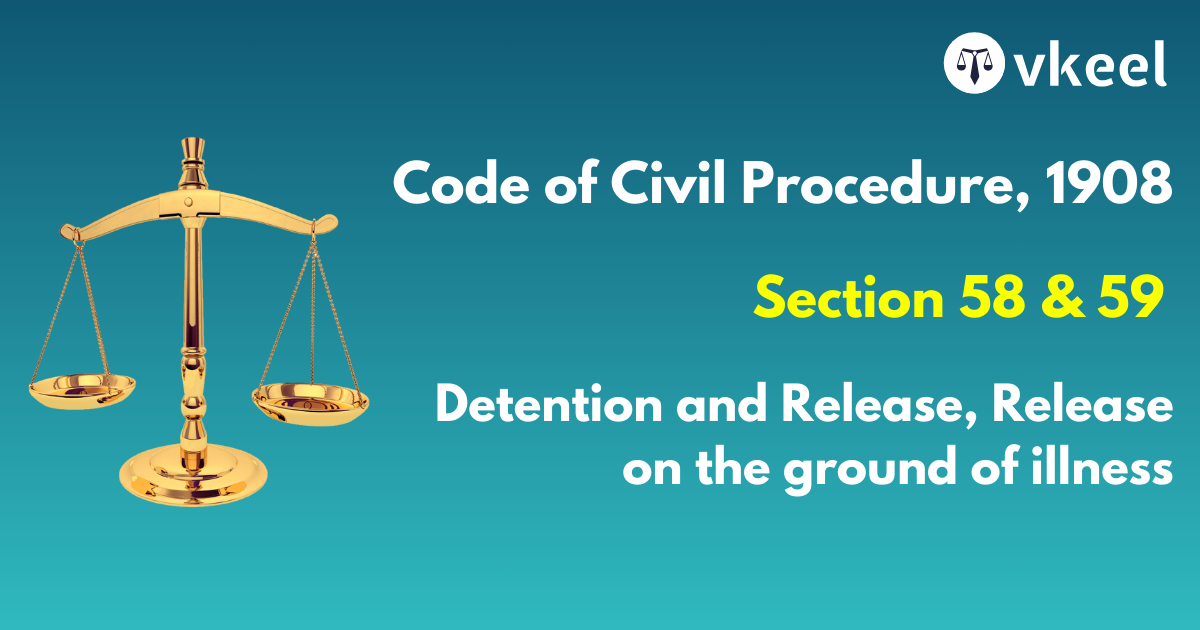Section 33 of Code of Civil Procedure,1908
By Joy Puri
Introduction
The courts over a long period of time, have evolved with the ideas which have been proven to be binding upon the citizens.
The perspectives of the courts of law have been put forth by various judicial pronouncements and through the medium of the judgements and orders the courts have expressed their views thereof.
Section 33 of the Code of Civil Procedure, 1908
Judgment and decree
The Court, after the case has been heard, shall pronounce judgment, and on such judgment a decree shall follow.
Difference between Judgement and Decree
The essential element of a judgment opines that there should be a statement of the grounds of the decision. Every judgment other than of a Court of Small Causes should contain (i) a concise statement of the case; (ii) the points for determination; (iii) the decision thereon; and (IV) the reasons for such decision.
A judgment of a Court of Small Causes may contain only points (ii) and (iii). The sketchy orders which are not self-contained and cannot be appreciated by the appellate or revisional court without examining all the records are, therefore, unsatisfactory and cannot be said to be judgments in that sense. Even the Small Causes Court’s judgments must be intelligible and must show that the judge has applied his mind.
The judgment need not, however, be a decision on all the issues in a case. Thus, an order deciding need not, however, be a decision on all the issues in a case.
Hopping on to the other side of the coin, a decree refers to the formal expression of an adjudication which, so far as regards the courts expressing it , conclusively determines the rights of the parties with regard to all or any of the matters in controversy in the suit and may be preliminary or final. It shall be deemed to include the rejection of a plaint and the determination of any question within section 144 but shall not include (a) Any adjudication from which an appeal lies or an appeal from an order. (b) any order of dismissal or default.
Landmark Case Laws
Manohar Rajaram Chhabaria Vs Union of India & Ors., 2000
Under the Code of Civil Procedure, the Civil Court is enjoined with a duty to draw up a Decree as provided for under section 33 of the Code of Civil Procedure. Order 20 Rule 6 of the Code of Civil Procedure specifies as to what should be contained in a Decree, an order of the Company Law Board would not be an appeal from a decree and would only be on appeal from Order.
Shyam Sunder v. Satya Ketu, 1966
It will be seen that Section 96 of the Code of Civil Procedure provides for appeal from a decree in a suit, and that is why it is necessary to prepare a decree the same is also provided in Section 33 of the Code of Civil Procedure which in terms lays down that “the court, after the case has been heard, shall pronounce judgment, and on such judgment a decree shall follow”. We have no corresponding words in Sections 98 and 116-A of the Act, and that shows that it is not necessary to prepare a decree at the conclusion of the trial of an election petition and in consequence no copy of decree is necessary to be filed when an appeal is filed under Section 116-A of the Act.
Rook Kumar v Mohan Thedani, 2003
Statements of fact as to what transpired at the hearing, recorded in the judgment of the Court, are conclusive of the facts so stated and no one can contradict such statements by affidavit or other evidence. If a party thinks that the happenings in Court have been wrongly recorded in a judgment, it is incumbent upon the party, while the matter is still fresh in the minds of the judges, to call the attention of the very judges who have made the record.
United India Insurance Co Ltd v Patricia Jean Mahajan, 2002
Only the Court which recorded the statement itself is competent to rectify the error if the Court recording the statement is approached to consider the matter without delay. But in cases where a stray mark or observation made by the Court is not very clear and is vague, and different picture emerges from other part of the judgment, it would be open to the Supreme Court (the higher Court) to ascertain the correct position on the basis of the totality of the observations made in the judgment itself.
Conclusion
To conclude, the word judgement is derived from the word ‘jungere’ which means to bind. The attainment of justice thereby helps the society to bind, and which leads to the betterment of the society.
The pronouncement of the judgement or a decree thereby promote a structured society, To boot, it helps the society to be more disciplined and encourages the values in the process stemming thereof.
Disclaimer:
The information provided in the article is for general informational purposes only, and is not intended to constitute legal advice or to be relied upon as a substitute for legal advice. Furthermore, any information contained in the article is not guaranteed to be current, complete or accurate. If you require legal advice or representation, you should contact an attorney or law firm directly. We are not responsible for any damages resulting from any reliance on the content of this website.

